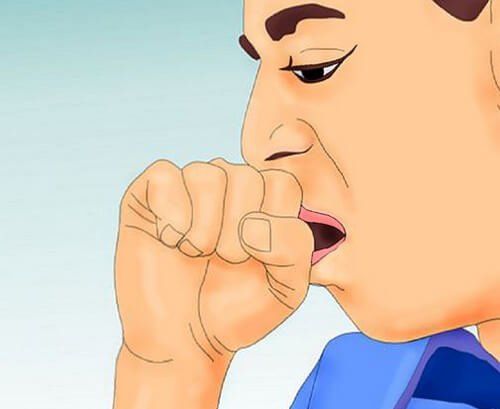What is Phlegm?
As the name implies, this is a condition in which cough is associated with sputum production.
The term phlegm signifies an inflammation that results into an excessive mucous production. This excessive mucous cough outs as a sputum. Sputum colour, consistency and nature may vary depending on the nature of the problem. It can be clear or of various colours such as yellow, green, red or brown. It can be watery or thick in consistency.
Causes of Phlegm
A cough accompanied with sputum or phlegm or mucus is commonly referred as a productive cough. It is usually an indication of the infection within the lungs. There are various other factors associated with the cause of the cough with phlegm such as allergic reactions, various irritants e.g. pet dander, smoking, chemical fumes or dusts etc, common cold or infection by bacteria, fungi or viruses.
Coughing up phlegm is also seen in certain upper respiratory tract conditions such as whooping cough, pneumonia, bronchiolitis, gastroesophageal reflux or bronchitis. There are number of other etiological agents behind coughing up phlegm. These include:
- Postnasal Drip
- Tuberculosis (TB)
- Flu
- Lung cancer
- Acute or chronic bronchitis
- Alcoholism
- Asthma
There are many foods that also increase the production of mucous. These should be avoided. These are as follow:
- Milk products for instance yogurt, cottage cheese and cheese
- Chocolate
- Refined sugars
- Salty foods
- Soy
- Products containing Yeast
Coloured Phlegm and Causes
Phlegm of any colour than the white is the clear indication of an infection or some other problem. It then becomes essential to seek help from a doctor for early treatment. Different colours of sputum or phlegm with their causes are as follow.
Yellow Phlegm
It is the indication of bacterial infection or a lower respiratory tract infection such as sinusitis, bronchitis, cold, flu or allergy. Chronic respiratory tract diseases may lead to production of thick yellow sputum.
Brown Sputum
It is not so rare and is seen commonly in smokers. It may also be the result of smog inhaling or can be the sign of presence of blood in sputum or any infection.
Green Phlegm
It is the indication of a lung parenchyma infection such as pneumonia. It is commonly seen in condition of a post nasal drip. Avoid meat and dairy products to prevent it.
Red or Pink Coloured Sputum
Red sputum is the clear sign of a presence of blood unless stated otherwise. The severe infection is responsible for it and therefore requires an immediate medical attention.
Grey Sputum
It is again seen in smokers and may be an indication of the air pollution inhalation.

Phlegm in Neonates and Children
Neonates and children are more susceptible to develop cough with phlegm. In them virus is usually the main factor. The common cold virus causes this cough and phlegm in them.
Coughing and Sputum During Pregnancy
Cough, nasal congestion and sputum production are some of the common complains during pregnancy. This is the result of hormonal fluctuations particularly estrogen that aggravates mucus production.
Symptoms
Cough with sputum can be accompanied by various other symptoms that indicate the underlying conditions. For example in case of TB, there are night sweats, fever, and weight loss along with severe cough. In case of common cold there are rhinorrhea, malaise, and body aches in conjunction with sore throat and cough with phlegm. Bronchitis is associated with painful breathing, coughing and fever. Likewise, there are associated symptoms that may help to diagnose a disease properly.
Diagnostic Tests
After general physical examination your doctor will ask you to undergo following diagnostic tests depending on your history. These are essential to confirm the cause and detecting a disease. These include:
- Blood tests
- Chest X ray
- Sputum examination
- Tuberculin Skin Test
- ECG
- CT scan
Treatment of Coughing Up Phlegm
Self Care:
Caring yourself is the best approach in tackling such problems.
- You can protect yourself by avoiding environmental irritants such as cigarette smoke, pollution and pet dander.
- Try to keep yourself sufficiently hydrated and eat well-balanced and healthy diet.
- Sometimes, mucous remains within the respiratory passages and creates irritation and produces cough. In order to ease the release of mucous you can install a vaporizer where you stay most of the time. It will create high humidity that may soothe the bronchial passages and may assist to slacken the phlegm.
- You can also apply a hot compression over your chest.
Medical Treatment
To get a proper treatment, it is essential to visit a doctor who will identify your main problem and give you treatment accordingly. First you need to avoid the use of over-the-counter cough suppressants because they only produce sedation and also increase the risk of addiction. Your doctor may prescribe you mucolytics as well as expectorants that soften the mucous and allow it to easily cough up and clear the respiratory passages. Antibiotics are also advised in case of infection.
It is important that no delay occurs in the treatment of productive cough. Otherwise, it can lead to serious consequences and problems in respiration.
Treatment Neonates And Children
You can ease the productive cough in your babies by giving them stream. Give them hot steam for a period of about 10 to 15 minutes. A warm steam vaporizer may also help them in loosening their mucous and clearing the respiratory passages.
They should be placed in the upright position during sleep. It allows them to breathe easily. Give them enough liquid so to keep them hydrated as well as to make their secretions thin.
Treatment During pregnancy
During pregnancy, the best way to prevent condition of coughing up phlegm is to care yourself. Pregnant women should avoid different irritants that may evoke cough in them. Take steam or gargles with saline solution. These ladies should avoid using the unnecessary medicines as they may cause dangerous affects on their babies.
Foods That Enhance Loosening of Phlegm
There are various foods that promote breaking up of mucous or Phlegm. These include:
- Grapefruits
- Pineapple
- Lemon
- Oranges
- Cauliflower
- Garlic
- Asparagus
Herbal teas and soaps especially are recommended here. Thus, care yourself and remain strong, hale and hearty.
References
http://www.ehow.com/how_
http://www.nlm.nih.gov/
http://health.yahoo.net/
http://www.nhs.uk/conditions/
